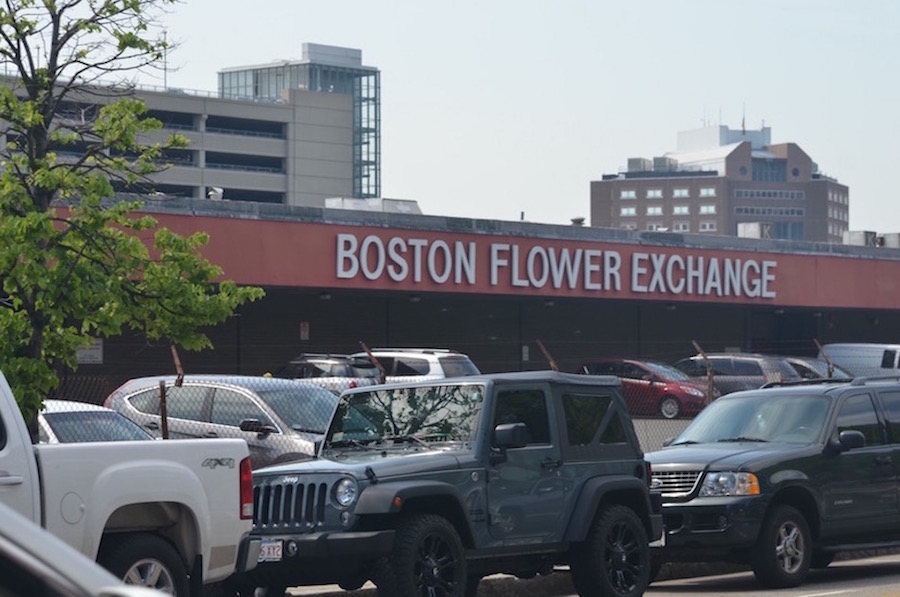The answer to one more Boston mystery was revealed on Thursday morning.
Speculation about the prospective buyers of a 5.6-acre site in Boston’s booming South End has swirled ever since the owners of the Boston Flower Exchange announced they would sell last May after 40 years of operation on the site. Rumors had the property on the 500 block of Albany Street abutting I-93 being used for everything from a soccer stadium for the New England Revolution, to a biomedical research facility affiliated with the Boston University Level 4 biolab located next door.
Nobody has been able to figure out who was under agreement to buy the property. Until now, that is.
The Abbey Group came out of the shadows during Thursday’s city council hearing, revealing themselves as the mysterious bidder.
The longtime Boston-based developer, which revitalized the Landmark Center near Fenway Park, said they don’t have a specific plan for the site and won’t develop one until the sale is final and they seek input from the neighborhood. They did say, however, that they would like to develop a “dynamic mixed-use commercially centered” project that would provide technology firms with a “viable alternative” to Cambridge’s Kendal Square. Such a development could provide between 5,000 and 10,000 jobs, they said.
“We would like to get the companies from Kendal Square into the South End and Boston, but also attract new companies as well,” Abbey Group Principal David Epstein told the council. “And hopefully have public space and some retail. That’s our goal.”
The deal is reportedly worth $40 million.
But before they ink anything, the parties are seeking a modification to the Urban Renewal zone that would pave the way for rezoning the site from light industrial to commercial, residential and parking.
The Boston Redevelopment Authority board will vote on the proposed change on June 8.
“Urban Renewal is another layer that this is clearing up so we have access to the new zoning,” Abbey Group Managing Partner Bill Keravuori told reporters after the hearing. “We’re very excited about it and we think we can do great things for that part of the South End.”
But not everybody is convinced a zoning change is the way to do that.
The Executive Director of the New Market Business Association Sue Sullivan helped rewrite the zoning code for the area three years ago.
“This is a full departure from the zoning,” she testified. “To take out light industrial is a full departure so I have real concern about that. Why do we go through the processes that we do to turn around three years later [and undo it]?”
Sullivan said some of the technology companies in Kendall Square might like to move to an area zoned for light industrial use.
“Back office 3D printing, that’s not commercial, that’s light industrial,” she told the council.
Concerns about traffic, parking and owner-occupied condominiums over rental apartments also arose during the hearing. The Flower Exchange is located near several mixed-use developments such as Ink Block and Troy Boston. Several more projects in the area are either under construction or on the planning table.
“I don’t think it’s an exaggeration to say the amount of development in the South End is like a freight train,” South End Forum President Steve Fox testified, “so this precedent in the South End is very important.”
But now that the Abbey Group has come out of the shadows there will be plenty of time to debate whatever proposal ends up going through the typical BRA review and community process.
“We were hearing from various folks ‘What’s going on? What’s going on?’ and we didn’t have a lot of information,” City Councilor and Development Committee Chair Bill Linehan told the Abbey Group representatives before they testified. “So this is the what’s going on; you’re the ones who know.”

